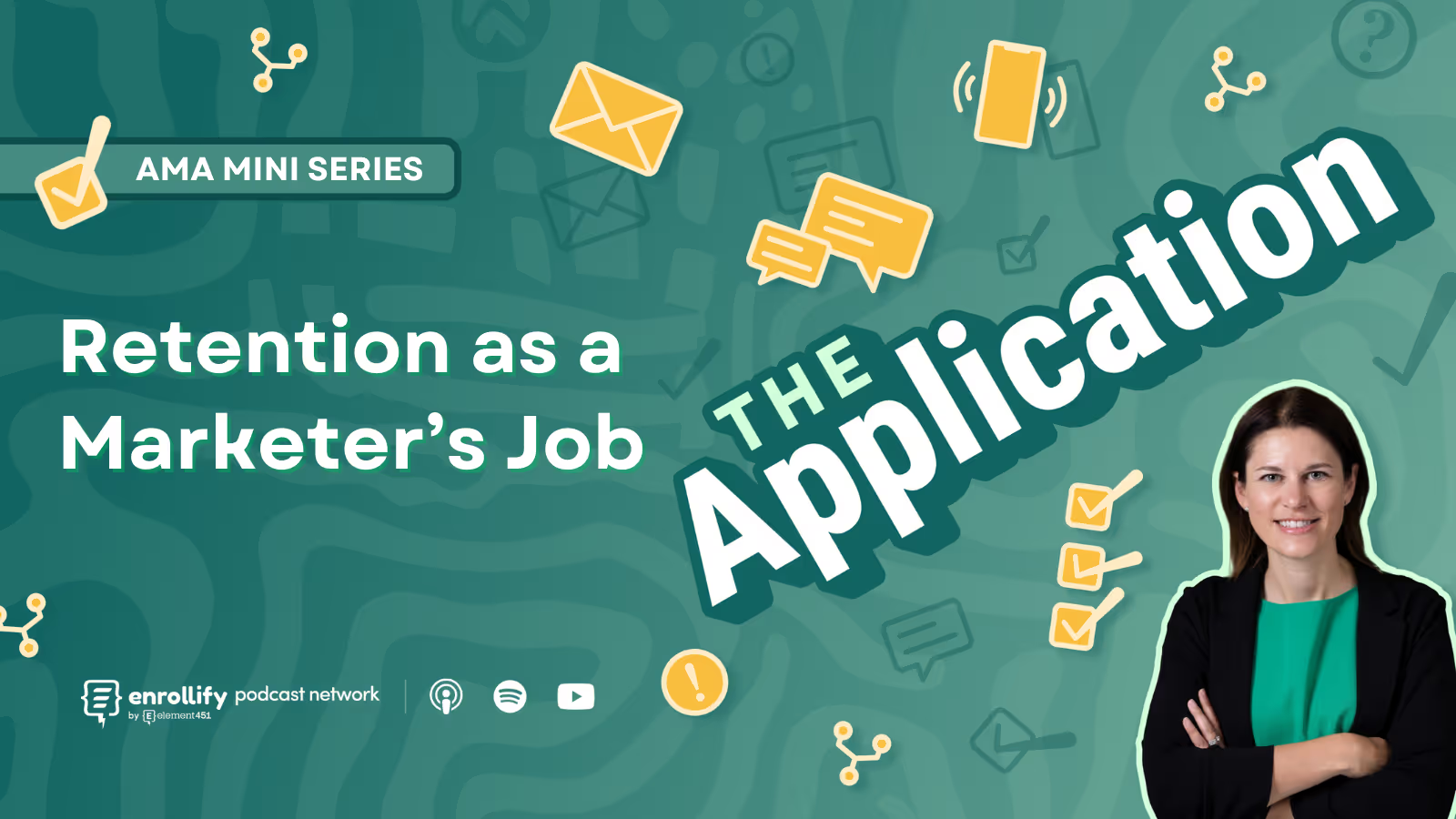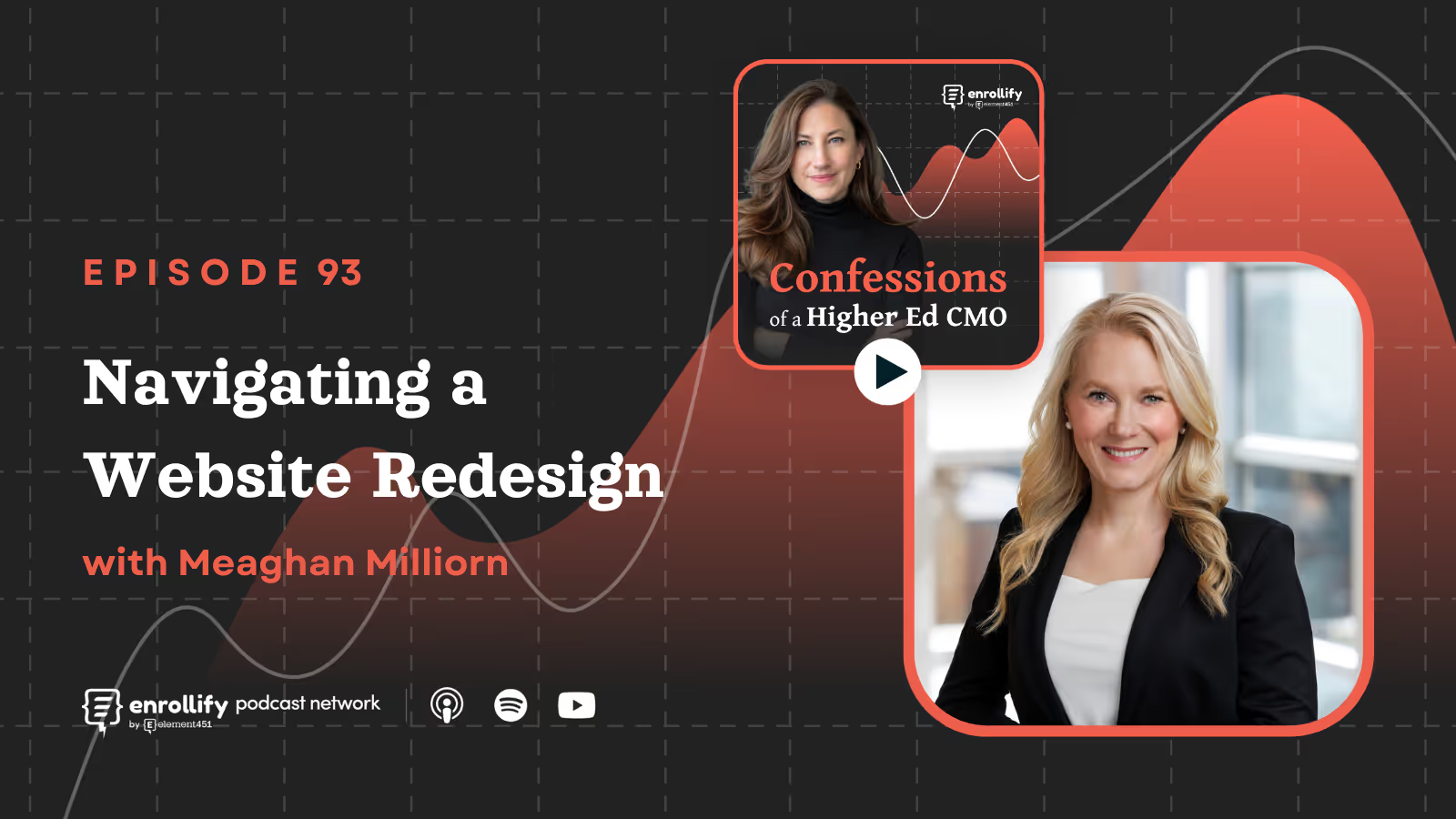About the Episode
In this episode, Bart Caylor joins Jeremy for a conversation on each of those things, as well as time management and the recruitment of first-generation students. You’ll hear about:
Key Takeaways
- AI is a Tool, Not a Threat: Generative AI can save significant time and enhance creativity, but adoption requires practice and a shift in mindset.
- Mission Fit Storytelling Drives Engagement: Successful marketing resonates emotionally by aligning institutional missions with prospective students’ goals.
- Time Management Starts with Delegation: Identifying your strengths and delegating the rest is key to balancing competing priorities.
- Higher Ed Needs to Embrace Change: Institutions must adapt to a future defined by leadership shifts, new technologies, and changing student demographics.
- Communication Must Prioritize Clarity: Simplifying messages—like avoiding tuition per-credit-hour math—and meeting prospective students where they are builds trust and connection.
Episode Summary: Key Questions and Answers
What is mission fit storytelling, and why is it important?
Bart emphasizes the need for institutions to identify students who align with their mission and use emotionally resonant stories to connect with them. For example, rather than listing academic programs or campus features, storytelling should tap into prospective students' dreams and emotions, showcasing how others with similar aspirations have thrived.
How can AI improve higher ed marketing?
Generative AI tools like ChatGPT can save time by automating tasks like idea generation, creating targeted content, and even assisting with meal planning to illustrate its accessibility. However, AI is a tool that requires practice to master. Institutions should prioritize training teams on prompt engineering and ethical usage for the best results.
What steps should higher ed take to reach first-generation students?
As a first-generation student himself, Bart highlights the importance of assuming students and families know little about the application process. Clear communication—such as using simple, upfront tuition costs and culturally relevant materials—can demystify college admissions. Bart also advocates for creating resources in multiple languages and focusing on parent education to address common barriers.
What role does leadership play in navigating change in higher ed?
Bart predicts that 2024 will bring even greater change than 2023, requiring leaders to embrace change management as a critical skill. Institutions must prepare for a generational shift in leadership as some senior administrators exit the field. Younger professionals must build adaptability and seek mentorship to thrive in this environment.
How can time management improve productivity?
Bart’s approach to time management centers on identifying tasks that align with personal strengths and delegating others. Generative AI tools can significantly boost efficiency, enabling professionals to achieve more in less time. Intentional scheduling, including understanding your "magic time" (peak productivity hours), also makes a big difference.















